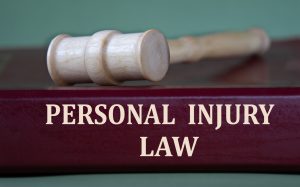From dog bites to drunk drivers, a personal injury claim can arise in a whole host of situations. The legal definition of a personal injury is when a person's body, mind, or emotions are injured as a result of the negligence, carelessness, or wrongful conduct of another person.
Personal injury law, also known as tort law, gives an injured person the right to be financially compensated after they have suffered a loss as a result of someone else's negligence. In a successful personal injury case, the person who caused the injury or harm is responsible for compensating the person who has suffered the loss. If you have had an accident caused by the fault of another, you may be entitled to receive compensation, also called damages, from the individual or business that is legally responsible.
What Do I Need To Prove?
A valid personal injury claim must prove that the other party - the defendant - was negligent and, therefore, at fault for the accident that caused your injury. Establishing negligence in a personal injury claim can be difficult and requires enough evidence to show that the other party was at fault. An experienced law firm that specialises in the field of personal injury law can help you with putting together a viable claim. To prove the other party is liable for compensating you for your injury it is necessary to show that the four elements of negligence were present in your claim.
The Four Elements Of Negligence
1. Duty of care
This refers to the other party’s responsibility to ensure your safety. Did the defendant have a legal duty to prevent or avoid causing you harm?
2. Breach of duty
This occurs when the defendant fails to exercise reasonable care or act in a manner that an average person would do under similar circumstances. It must be proven that a reasonably able person placed in the defendant’s position at the time of the accident would have acted differently.
3. Causation
Causation requires you to show that the defendant’s breach of duty directly caused your injury. You must be able to prove that the defendant’s negligence is the sole cause for the injury you suffered and that this would not have happened if the defendant had acted differently. It’s important to note that the defendant must have foreseen that his or her actions would result in an injury. If, for example, the action that caused your injury was an unexpected act of nature then it would be deemed unforeseeable, resulting in an unsuccessful claim.
4. Damages
The final element needed to prove negligence is to show that the defendant’s actions caused you to suffer actual damages for which you can be compensated. Damages can include any medical expenses you incurred, emotional distress suffered, or loss of income caused as a result of your injury.
If you can successfully establish these four elements of negligence were present in your claim, then you have a strong chance of securing compensation for your injuries.





















